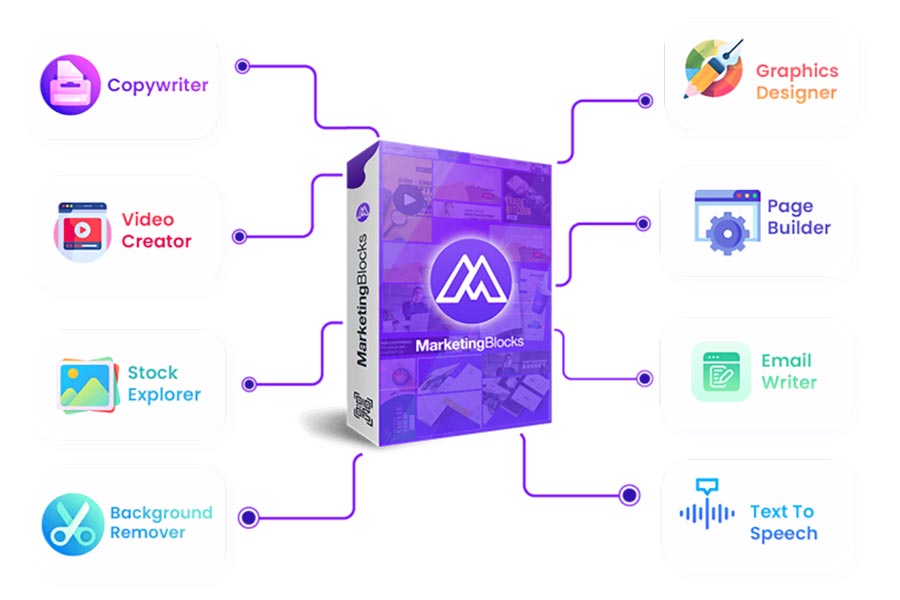Power of Influencer Marketing: The Rise to Success

Introduction
Influencer Marketing involves forming alliances with individuals who possess a solid online presence and can influence their followers in purchasing decisions. As they are commonly known, influencers can be located on social media platforms like Instagram, YouTube, TikTok, and more. Brands partner with these influencers to connect with their intended audience through sponsored posts, product promotions, and brand partnerships.
“Influencer Marketing is projected to become a $15 billion industry by 2022.”
— Business Insider
Influencer Marketing dated back centuries when celebrities and prominent figures were utilised to endorse products. But with the advent of social media and the growing impact of online personalities, Influencer Marketing has evolved into a widely adopted marketing tactic. The first significant instance of Influencer Marketing on social media was in 2006, when a blogger was paid to write a positive product review. Since then, Influencer Marketing has evolved and grown to become a multi-billion-dollar industry.
This blog aims to explore the rise of Influencer Marketing and its effectiveness. We will examine the history and growth of Influencer Marketing, its advantages, challenges, and how businesses can implement this marketing strategy. Our objective is to furnish a comprehensive examination of Influencer Marketing and aid businesses in comprehending its effectiveness in reaching their intended audience and elevating brand recognition. The article will provide practical advice and recommendations for companies looking to implement Influencer Marketing into their marketing strategy.
What is Influencer Marketing
Explanation of the concept
Influencer Marketing is a strategy involving partnering with individuals with a robust online presence to promote a brand’s products or services. The role of the influencer is to produce content, such as sponsored content or product evaluations, that will captivate their followers and spur them to take a particular action, like making a purchase. The idea behind Influencer Marketing is to leverage the influencer’s relationship with their followers to drive brand awareness and sales.
Types of Influencer Marketing
There are several types of Influencer Marketing, including:
Micro-Influencer Marketing: This type of Influencer Marketing involves working with individuals with a smaller but highly engaged following. Micro-influencers typically have 10,000 to 100,000 followers and are known for solid connections with their audience.
Macro-Influencer Marketing: This type of Influencer Marketing involves working with individuals with a large following, typically over 100,000 followers. Macro influencers are known for their broad reach and the ability to drive significant brand awareness.
Nano-Influencer Marketing: This type of Influencer Marketing involves working with individuals who have a following of less than 10,000 followers. Nano-influencers are known for their niche expertise and highly engaged audience.
Comparison with Traditional Marketing
Influencer Marketing differs from traditional marketing in several key ways. Firstly, traditional marketing relies heavily on mass advertising and brand messaging, whereas Influencer Marketing is based on the power of personal recommendations. Secondly, traditional marketing is often impersonal and lacks authenticity, whereas Influencer Marketing is based on the relationship between the influencer and their followers. Finally, traditional marketing is often more expensive, whereas Influencer Marketing can be more cost-effective, especially for small businesses.
“92% of consumers trust recommendations from individuals over brands.”
— Nielsen
Influencer Marketing gives businesses a unique opportunity to reach their target audience through authentic, personal recommendations made by individuals with a robust online presence. This marketing strategy has proven to be an effective tool for increasing brand awareness and driving sales, making it an essential consideration for businesses looking to grow their brand.
The Growth of Influencer Marketing
Increased Popularity

The popularity of Influencer Marketing has experienced a substantial surge in recent times, with an increasing number of businesses incorporating it into their marketing strategy. This growth can be attributed to several reasons, such as the rise of social media, the expanding impact of online personalities, and the rising demand for authentic and personalised marketing.
Trends
“Influencer Marketing campaigns have an average return on investment (ROI) of $5.20 for every $1 spent.”
— Tomoson
According to recent studies, Influencer Marketing is a rapidly growing industry. In 2020, the Influencer Marketing industry was valued at $9.7 billion, projected to grow to $15.7 billion by 2022. Additionally, a survey conducted by Influencer Marketing Hub found that 94% of marketers who used Influencer Marketing found it to be an effective strategy. Furthermore, it was found that brands that use Influencer Marketing have seen an average return on investment of $5.20 for every dollar spent.
Factors Contributing to the Growth
The growth of Influencer Marketing has been influenced by several factors, including:
The rise of social media: Social media has given influencers a platform to reach a large audience, making promoting products and services easier.
The increasing influence of online personalities: With the growth of social media, individuals with a solid online presence have become more influential in shaping consumer behaviour.
Authenticity and personalisation: Consumers are looking for authentic and personalised experiences, and Influencer Marketing provides this through the relationship between the influencer and their followers.
Cost-effectiveness: Influencer Marketing can be more cost-effective than traditional marketing, especially for small businesses, making it an attractive option for companies looking to grow their brand.
The expansion of Influencer Marketing results from various factors, like the rise of social media, the growing impact of online personalities, and the requirement for genuine and customised marketing. With the sector expected to persist in growing, Influencer Marketing is a crucial consideration for businesses seeking to reach their target audience and enhance brand recognition.
Advantages of Influencer Marketing
Authenticity and Trust
One of the most crucial benefits of Influencer Marketing is the credibility and trust it adds to the marketing strategy. Influencer Marketing is based on personal recommendations from individuals with a solid online presence. Consequently, customers are more inclined to trust and believe in the advertised product or service. This trust and authenticity can increase brand loyalty and a better overall brand image.
Reaching Target Audience
Influencer Marketing allows businesses to reach their target audience through individuals who strongly connect with their followers. This connection makes it easier for the influencer to engage with their audience and drive brand awareness and sales. Furthermore, Influencer Marketing allows businesses to reach a specific niche audience, making it easier to reach consumers who are most likely to be interested in the products or services offered.
Cost-effectiveness

Influencer Marketing provides a cost-efficient means of reaching a broad audience compared to conventional marketing techniques. By working with influencers with a more minor but highly engaged following, businesses can achieve significant results without the high cost of conventional advertising. Additionally, many influencers are willing to work with brands on a barter basis, exchanging products or services for promotion, further reducing the cost of Influencer Marketing.
Increased Engagement
Influencer Marketing has been shown to increase engagement, as influencers can create highly relatable and appealing content for their audience. This increased engagement can lead to higher levels of brand awareness and an increase in sales. Additionally, Influencer Marketing has the potential to create a viral effect, as influencer content is often shared and reposted, increasing the reach of the marketing message.
“58% of marketers believe that Influencer Marketing is the most effective form of marketing.”
— Linqia
Influencer Marketing presents numerous benefits, including genuine credibility, targeted audience reach, cost efficiency, and heightened interaction. These advantages render Influencer Marketing a valuable strategy for companies seeking to expand their brand and connect with their intended audience.
Challenges of Influencer Marketing
Fraud and Fake Followers

In Influencer Marketing, the primary obstacles are fraudulent behaviour and counterfeit followers. To enhance their appearance of being influential, specific influencers might acquire fake followers, which can artificially boost their online profile and deceive companies about their reach and engagement level. This can lead to a subpar outcome for the business and the misallocation of resources. To avoid this issue, businesses must thoroughly examine the influencers they are contemplating partnering with and utilise techniques to authenticate their following and engagement.
Measuring Success
Measuring the success of Influencer Marketing can be challenging, as it is difficult to determine the impact of the influencer on sales and brand awareness. While some influencer marketing platforms offer metrics such as reach, engagement, and conversion rates, it can be difficult to determine the campaign’s overall impact. To overcome this challenge, businesses should set clear goals and metrics for their Influencer Marketing campaigns and continually monitor and analyse their results to determine the effectiveness of their strategy.
Finding the Right Influencer
Finding the right influencer for a business can be challenging, requiring a deep understanding of the target and influencer’s audiences. Companies should consider their niche, the size of their following, engagement rate, and overall brand fit to find the right influencer. Additionally, businesses should look for influencers who are a good fit for their brand and those who have a genuine interest in the products or services offered.
“Instagram is the most popular platform for Influencer Marketing, followed by TikTok, YouTube, and Facebook.”
— Business of Apps
Regulation and Legal Considerations
Influencer Marketing is subject to several regulations and legal considerations, including truth in advertising laws, disclosure requirements, and intellectual property laws. To avoid legal issues, businesses should carefully research the rules that apply to their industry and work with influencers who are aware of and comply with these regulations. Additionally, companies should ensure that their influencer contracts include disclosure and intellectual property provisions to protect their interests and avoid potential legal issues.
To sum up, despite the challenges associated with Influencer Marketing, such as fake followers and fraud, difficulties in determining success, identifying a suitable influencer, and regulatory concerns, these obstacles can be overcome through thorough research of potential influencers, setting well-defined goals and metrics, and compliance with industry regulations, which can then lead to the full realisation of the benefits of this marketing approach.
Conclusion
Influencer Marketing has experienced substantial growth in recent years due to its benefits. This marketing approach offers businesses a distinctive chance to reach their target audience authentically and credibly, surpassing traditional marketing methods. The growth of Influencer Marketing can be attributed to its widespread adoption, cost-effectiveness, and increased engagement. Although there are challenges to this marketing technique, including fake followers, determining success, identifying the appropriate influencer, and regulatory and legal concerns, these obstacles can be addressed through careful preparation and investigation.
Influencer Marketing offers a valuable opportunity for companies looking to connect with their desired audience. Despite its challenges, the advantages of utilising this approach are substantial. By employing a well-thought-out plan and effective execution, businesses can take advantage of the power of Influencer Marketing to expand their reach, bolster brand recognition, and generate sales.
The future outlook for Influencer Marketing is very positive. As more businesses recognise the benefits of this type of marketing, the demand for influencer marketing services will continue to grow. Additionally, technological advancements and data analysis will make it easier for businesses to measure the success of their Influencer Marketing campaigns and fine-tune their strategies accordingly.
For businesses looking to get started with Influencer Marketing, the following recommendations are offered:
- Carefully potential research influencers, including their niche, following, engagement rate, and overall brand fit
- Set clear goals and metrics for the Influencer Marketing campaign
- Continuously monitor and analyse the results of the campaign
- Follow industry regulations and ensure that contracts include provisions for disclosure and intellectual property
- Work with influencer marketing platforms to help you find the right influencer and measure the campaign’s success.
Influencer Marketing is a highly effective means for businesses to connect with their desired audience purposefully and significantly. By putting in thoughtful preparation and research, organisations can effectively tackle the obstacles in Influencer Marketing and enjoy the rewards of this marketing approach.
Be sure to check out our other related posts if you enjoyed this one:
- Supercharge Your Business: Mastering Cross-Channel Marketing Magic!
- Influence: The Psychology of Persuasion by Robert B. Cialdini – A Word Marketing Book Summary
- Building Trust: Brand Awareness & Reputation
- Unlocking Success: Data-Driven Targeted Advertising
- The AI Revolution: Transforming Marketing & Advertising
- Introducing Our New and Improved Dewalist Marketplace Design
- Ad Ethics: Balancing Persuasion with Responsibility
- Email Showdown: Mandrill vs Mailchimp Features
- The Future of Digital Out-of-Home (DOOH) Advertising
- Revolutionising Marketing with Virtual & Augmented Reality
Sign up for updates on this blog and our latest marketing posts if you enjoyed reading this one.
Share our blog content with your friends and colleagues via Facebook, Twitter, Pinterest, LinkedIn, email or WhatsApp links below and help them stay informed about the latest insights on business, marketing, finance, lifestyle, and society. Let’s build a knowledge-sharing community and empower each other to achieve our goals.
Credits
- Featured image by Freepik.
- Influencer growth image by Drazen Zigic on Freepik.
- Influencer advantage photo by Liza Summer on Pexel.
- Influencer challenge image by Benzoix on Freepik.










